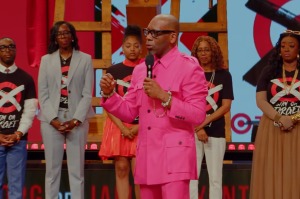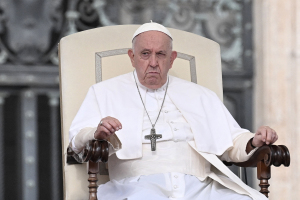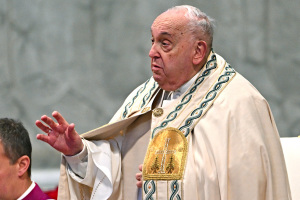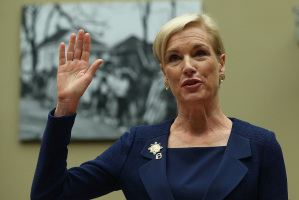Most Americans view ‘wokeness’ as a positive term even though many conservatives don’t: study
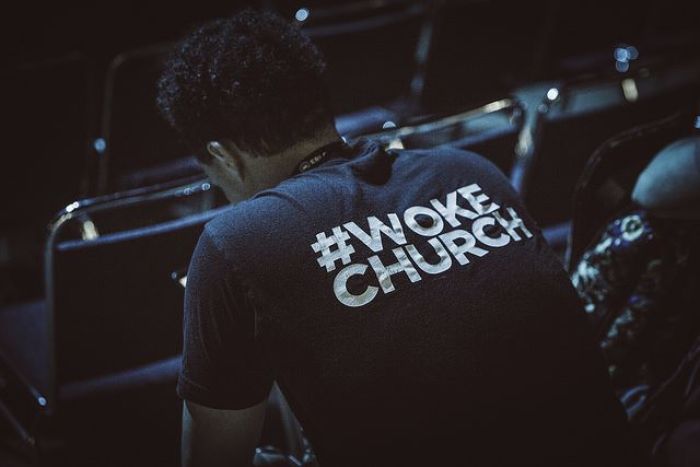
While many prominent conservatives have dismissed the term "wokeness" as a threat to the Gospel, a new USA Today/Ipsos poll shows that most Americans view it as simply an awareness of social injustices instead of a term demanding that people be "overly politically correct" or a policing of language.
The poll, conducted from March 3 to March 5, includes a nationally representative sample of 1,023 adults age 18 or older. The sample consists of 311 Democrats, 290 Republicans and 312 independents.
Overall, 56% of respondents described "wokeness" as being informed about "social injustices," while 39% said it "involves being overly politically correct and policing others' words."
While a vast majority of Democrats (78%) view the term positively, most Republicans (56%) said "wokeness" means "being overly politically correct." Independents leaned slightly towards viewing the term positively, with 51% of independents saying "wokeness" is about being informed about social injustices, while 45% agreed that it means "being overly politically correct."
Younger respondents were more likely to view the term positively than older ones.
However, when asked about what it means to be "woke," a higher percentage considered the characterization to be an insult rather than a compliment. Some 40% of respondents consider being called "woke" an insult, versus 32% considering it a compliment.
Some 60% of Republican respondents view being called "woke" as an insult, and only 46% of Democrats see the term as a compliment.
In his book, Christianity and Wokeness: How the Social Justice Movement Is Hijacking the Gospel — and the Way to Stop It, Owen Strachan, provost and research professor of theology at Grace Bible Theological Seminary in Arkansas, warns about the "slithery hiss" of the movement which he believes is a threat to Christians and white people.
"The term itself means that one is 'awake' to the true nature of the world when so many are asleep," Strachan notes in his book. "In the most specific terms, this means one sees the comprehensive inequity of our social order and strives to highlight power structures in society that stem from racial privilege. In intellectual terms, wokeness occurs when one embraces … Critical Race Theory."
Strachan, an outspoken opponent of critical race theory, argues that it produces a mindset of "wokeness" that seeks to exact reparations from white people for the sins of their forebears. He also calls for unrepentant church leaders who embrace "wokeness" to be excommunicated.
"I think the major problem with wokeness that requires excommunication is that it's anti-Gospel when you really examine it as a system. It compromises the unity of the truth. It lies about the human person. It says that white people in America are fundamentally oppressors of people of color and that's not a biblical truth," Strachan told The Christian Post. "That's not found in Scripture. That's injurious and unjust toward white people, and it will violate and compromise the unity of the church."
Benjamin Watson, a former NFL player and outspoken Evangelical Christian author of the 2015 book on racial reconciliation titled Under Our Skin: Getting Real about Race. Getting Free from the Fears and Frustrations that Divide Us, wrote last summer that he'd rather be "woke" than "quietly asleep."
In an August blog post, Watson, also known for his pro-life advocacy, wrote that "woke" can be defined as being "rooted in an awareness of racialized violence against black people by white America, whether by individuals or institutions, carried out intentionally or in innocence."
He stated that one of the earliest public appearances of "woke" in the black vernacular is in the 1938 song "Scottsboro Boys." But in 2014, the term became "intertwined with the Black Lives Matter movement" and placed at the "front and center in the public square and a burgeoning national reckoning on race."
Watson believes that being "woke" today is an "enduring necessity" because "the residue of anti-blackness still resides in the underpinnings of American society." However, he said the term has become part of the "culture war" in which "misappropriation and redefinition are the weapons of choice."
"It is a menacing and cruel transaction when a larger power broker sledgehammers a monument of remembrance and hurls its fragments as weapons of destruction against the community it was erected to empower," Watson asserted.
"Much like the term' race card,' those who abuse the word 'woke' sound like a rival sibling putting their fingers in their ears and screaming 'la la la la' to drown out conversations they do not like," Watson, who played in the NFL From 2004 to 2019, wrote.
"It discounts and delegitimizes a documented history of unjust, state-sanctioned attacks on black people through policy, programming, and personal prejudice. What's so confusing about this phenomenon is that many who would readily confirm that such injustice exists and rightly condemn it will hide behind 'woke' as a shield preventing engagement on the matter."

















